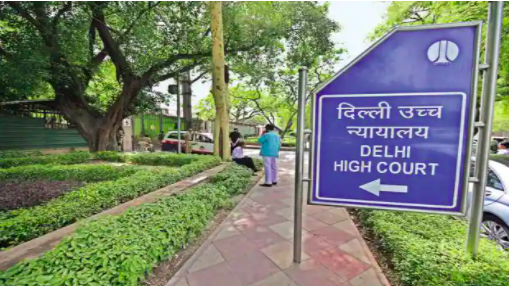In a significant judgment that should bring some relief to falsely accused and their families, the Delhi High Court held a police officer guilty of contempt of court for arresting a man in violation of the principles laid down by the Supreme Court in the case Arnesh Kumar vs State of Bihar.
Not just this, the high court has also sentenced the police officer to one-day imprisonment for contempt of court.
Case:
DCP Vijayanta Arya has been accused by the petitioner of arresting him by breaching directions passed by the Supreme Court in Arnesh Kumar Vs State of Bihar. According to the allegations, the requisite notice was not served upon the petitioner.
There were mere allegations of criminal breach of trust against the petitioner, which entailed a maximum sentence of three years. It did not warrant the arrest of a person in the manner in which it was done. The petitioner’s own complaints to the police were not responded to.
The Supreme Court has said in Arnesh Kumar that notice u/s 41A Cr.P.C. is requisite. The notice was not served.
Delhi High Court
Justice Najmi Waziri imposed a fine of Rs 2,000 on the police officer and directed him to pay costs of Rupees 15,000 to the petitioner, who had suffered incarceration for 11-days before his release on bail.
No amount of explanation to the neighbours or those who may have seen the arrest, would undo the embarrassment and indignity suffered by the petitioner and his relatives.
Arrest and incarceration destroys a person and collaterally affects many other innocent relatives. Subsequent release or acquittal of an innocent, is of no solace and offers no reparation to the loss of reputation or for the temporary loss of precious personal liberty.
The Court took note of the fact that while there were allegations of criminal breach of trust against the petitioner which entailed a maximum sentence of three years, the same did not warrant the arrest in the manner in which it was done.
The Court was of the view that the petitioner’s own complaints to the police were not responded to and that the highhandedness of the police officer was evident. The court remarked,
The petitioner’s right to personal liberty is ensured by the Constitution of India. It can be curtained only by a procedure prescribed established by law. The Supreme Court has said in Arnesh Kumar that notice under s. 41A Cr.P.C. is requisite. The notice was not served. The law has been breached.
It is not the petitioner only who has suffered the humiliation and the indignity of being arrested; the ordeal would have affected the reputation of his family i.e. his children, wife and parents.
In view of the above and keeping in mind that R-3 is a serving police officer with Delhi Police, that he has served for seven years and may have a long career ahead of him, R-3 is sentenced to undergo simple imprisonment for one day, along with a fine of Rs.2,000/-, as well as nominal costs of Rs.15,000/- for these proceedings, to be paid by him to the petitioner within four weeks.
ALSO READ –
READ ORDER | Police Officials To Face Action If Arrest Procedure As Per ‘Arnesh Kumar Vs State Of Bihar’ Guidelines Violated: Telangana High Court
RAJESH SHARMA V/S UNION OF INDIA | SC Restores Power Of Arrest To Police Under Section 498-A
Bombay High Court: “Every Case Of Harassment To Married Woman Is Not ‘Cruelty’ Under Section 498A”
READ ORDER | Allahabad HC Issues Directions To Ensure Compliance From Arbitrary Arrests In 498A Cases
ALSO WATCH –
Section 498-A Challenges | Discussion With Raghav Awasthi
Join our Facebook Group or follow us on social media by clicking on the icons below
If you find value in our work, you may choose to donate to Voice For Men Foundation via Milaap OR via UPI: voiceformenindia@hdfcbank (80G tax exemption applicable)































